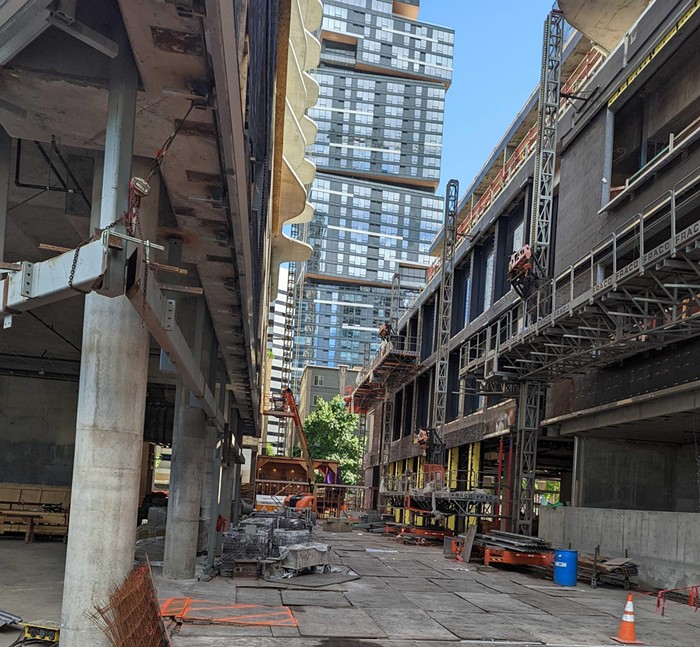
Some landlords in the Houston area are demanding that renters who fled their homes or apartments because of Hurricane Harvey and the resulting floods must pay their rent. There is even a Texas law that states if a house is not totally damaged by a storm or some violent weather event, and is deemed habitable, the rent "must still be paid." And if you don't pay, late fees are added to your woes. And all of this enters your credit history. And if you have a low credit score, it's hard to rent a place. One misfortune piles on to another until you reach a point when the only place that will relieve the growing pressure is the street.
A Harvey victim to The Guardian:
We are paying rent for somewhere we can’t live in. They said ‘you aren’t the only ones in this situation’, but what are we supposed to do? We don’t have any money. We don’t have anything.
With this in mind, I want to consider some points the urban economist Edward Glaeser made in his 2011 book Triumph of the City. Glaeser was trained at one of the leading institutions of neoclassical economics, University of Chicago. A core theory of this school is that markets, when free from government intervention, function very efficiently by a price system that communicates to sellers and buyers what is and is not in demand. Texas comes as close to this market ideal as possible. And so it is not surprising that a key strategy in Glaser's attack of zoning laws and NIMBYism, which he believes has its roots in Jane Jacobs (a mid-century architect critic and urban activist who fought for the preservation a section of Manhattan from what in her time urban planners called modernization: the construction of expressways in cities), was to present Houston as a success story.
Glaeser:
Houston’s success shows that a relatively deregulated free-market city, with a powerful urban growth machine, can do a much better job of taking care of middle-income Americans than the more ‘progressive’ big governments of the Northeast and the West Coast.Glaeser pointed out that cities like Seattle, San Francisco, and NYC were closed to the poor, despite being progressive; but Houston, a city that keeps regulations to a bare minimum and is dominated by state Republicans, was attractive to the poor and working classes because it was cheap. Rents there are low, homes go for a song, and energy is not hard on the wallet. In Houston, low wages can go much further than in Seattle, whose housing market is checked by the political power of NIMBYS and zoning laws.
Indeed, homeownership rates for blacks in Fort Bend, Texas—the county which is a part of the Houston metropolitan area—is 71 percent; whereas here in King County, it's only 28 percent. Glaeser even made the interesting argument that a city that does not attract poor people has failed. Seattle, according to this standard, has definitely failed.
Nevertheless, Glaeser did not point out (or maybe did not know) that Houston's cheapness came with hidden costs. We are only now seeing these costs as the flood waters recede. Only 16 percent of Houston's 1.5 million homes have flood insurance. And the reason for this is homeowners were not required to hold such a policy; and the absence of this requirement (which made sense to anyone but a climate denier), of course, kept costs down and the city growing. Now, many of those homeowners will end up in bankruptcy courts; and once there, they discover that the GOP changed bankruptcies laws to strongly favor creditors.
As for homeowners who have insurance policies for wind damage, if they did not file their claim on Sept 1, they face an insurance industry that has been granted enormous powers by the GOP to delay and avoid settling claims. This means more costs (filing, waiting, calling the insurance company, waiting, stressing, waiting, nightmares, rising blood pressure, re-filing, waiting, stressing, calling again, waiting, insomnia) for stranded homeowners. And now we are learning about a pro-landlord law that may chain renters (who live paycheck to paycheck) to homes and apartments they cant live in. (Habitability will certainly be in the eyes of the beholder.) We can also expect to see more laws of this regressive nature in the aftermath of this catastrophe.
Seattle needs to become affordable, not cheap. These are two different things that are often confused by American consumers. Density, affordability, and strong regulations will reduce costs in the long run (better health outcomes, better design decisions, and so on). Sprawl, lax regulations, and cheapness are a recipe for disaster. Cheap Houston worked as long as there were no costly catastrophes. Now that Harvey has caused an estimated $100 billion worth of damage, Houston has overnight become one of the most expensive cities in the world.















